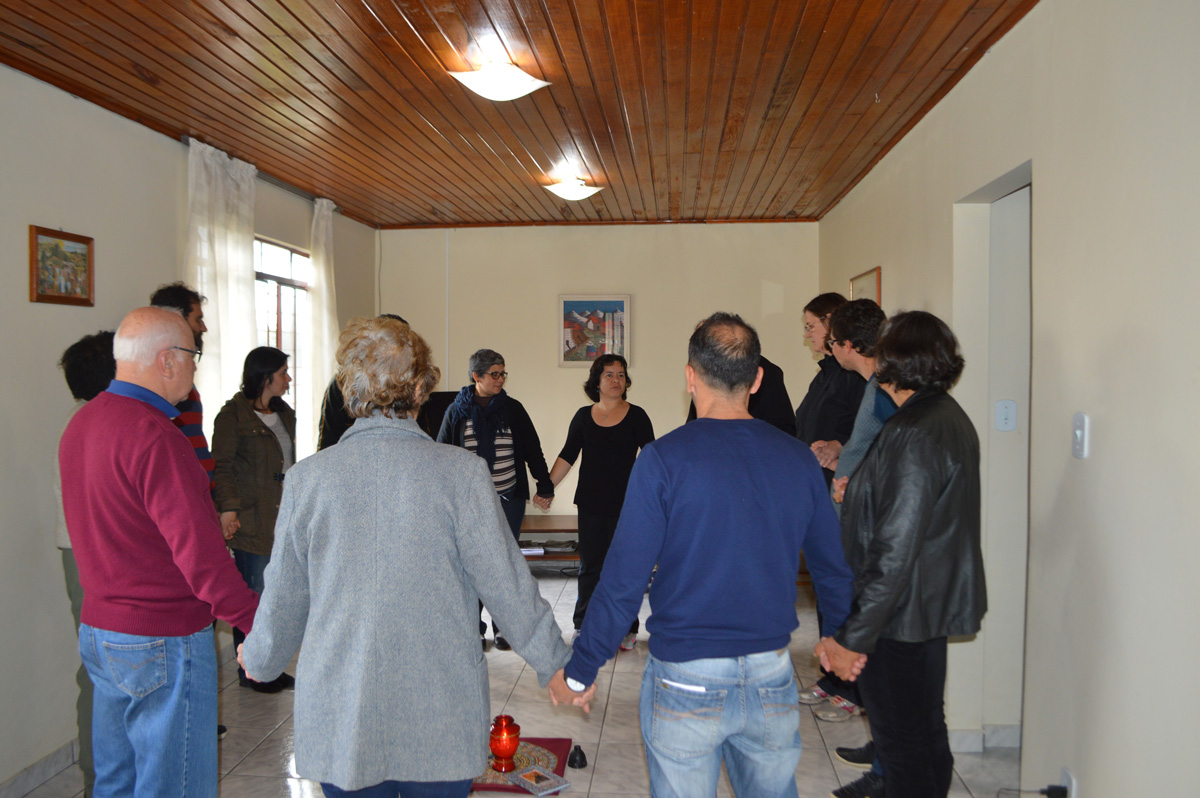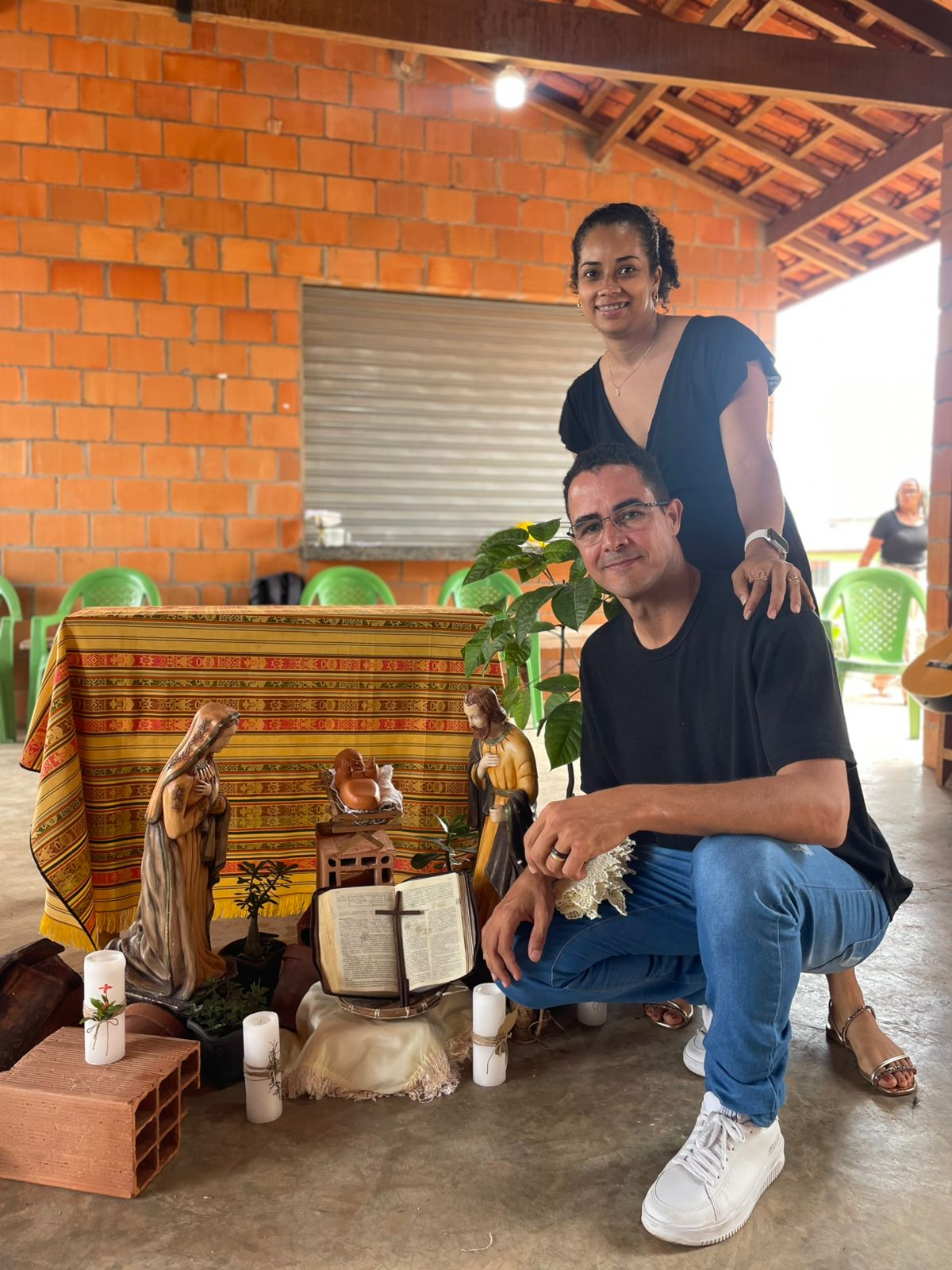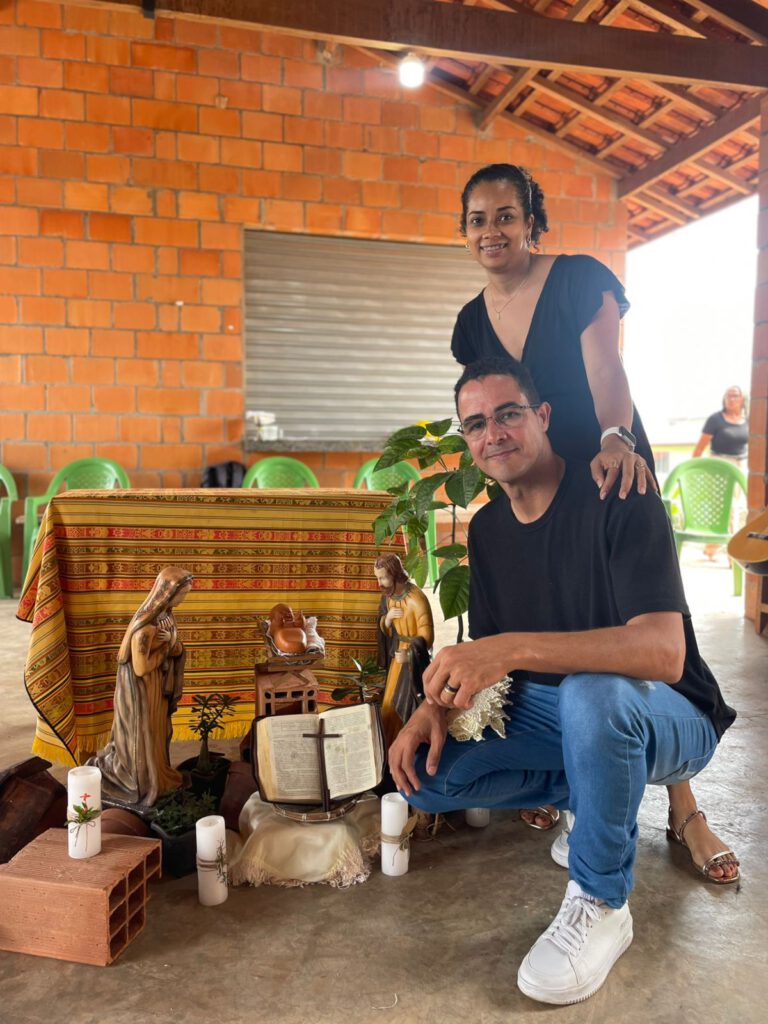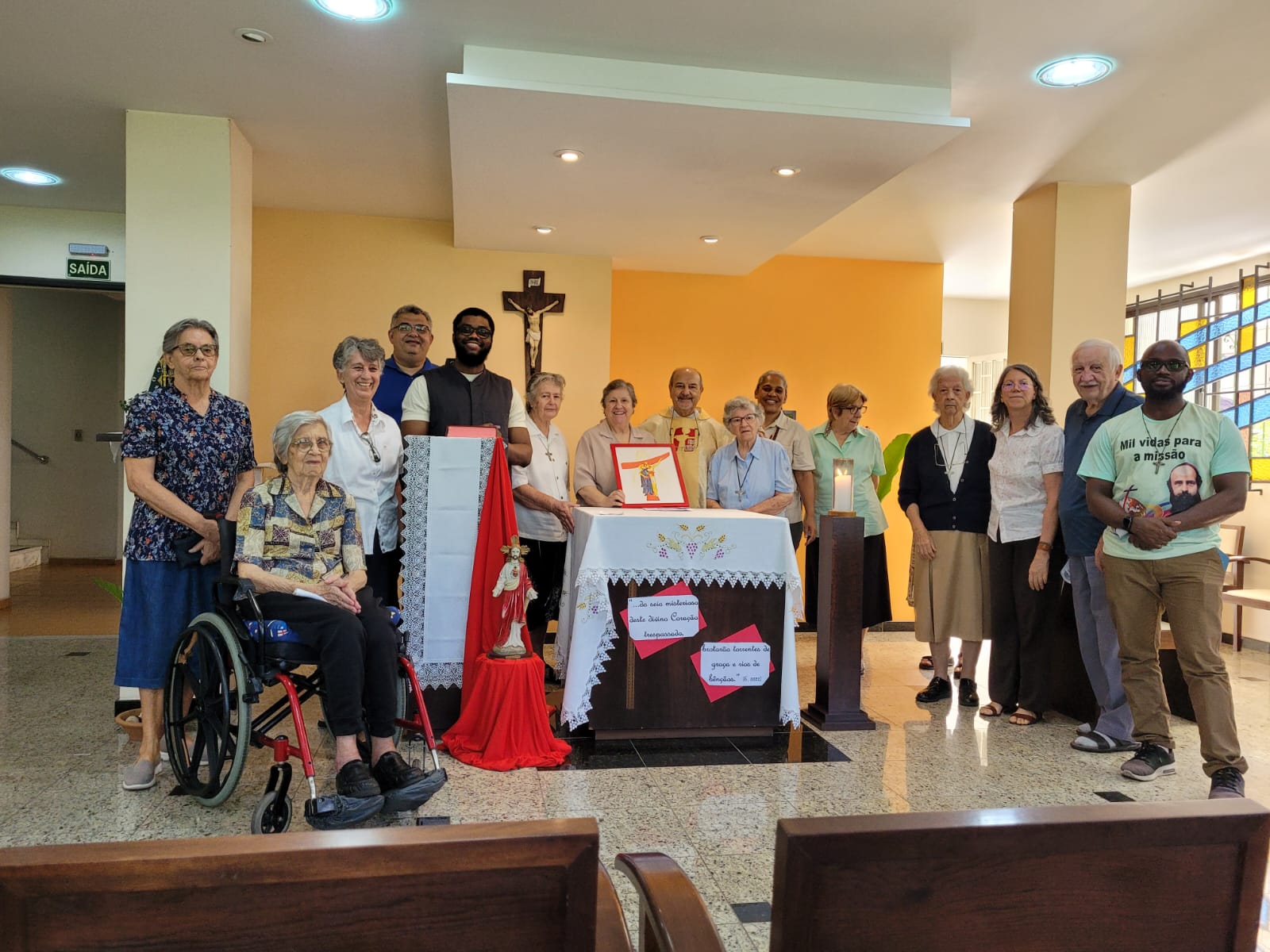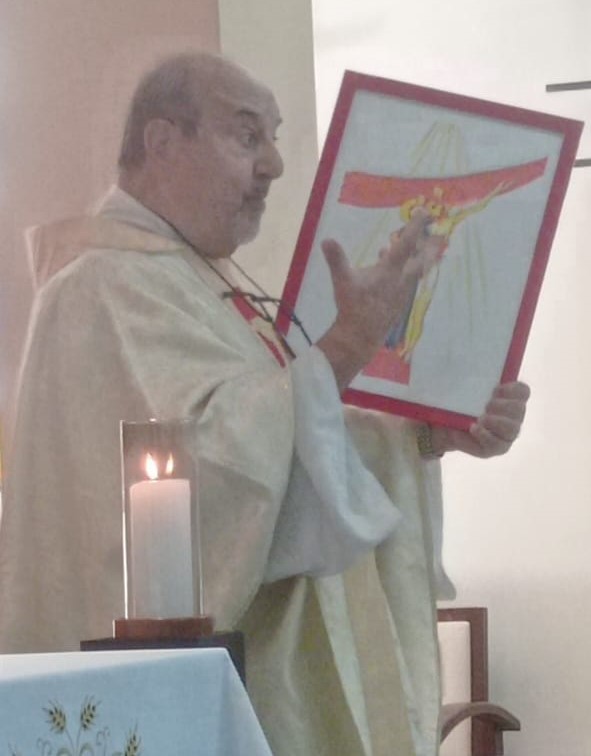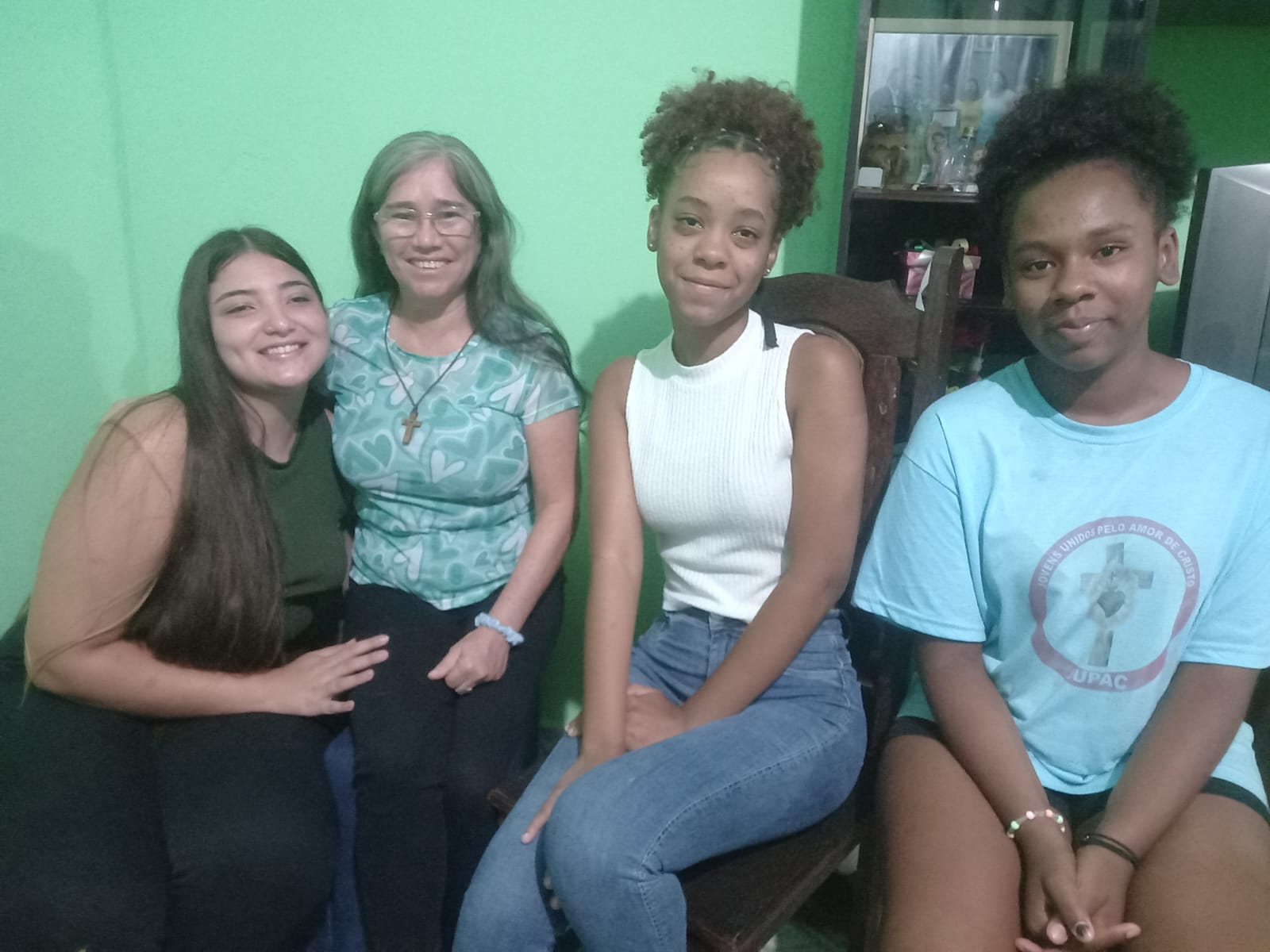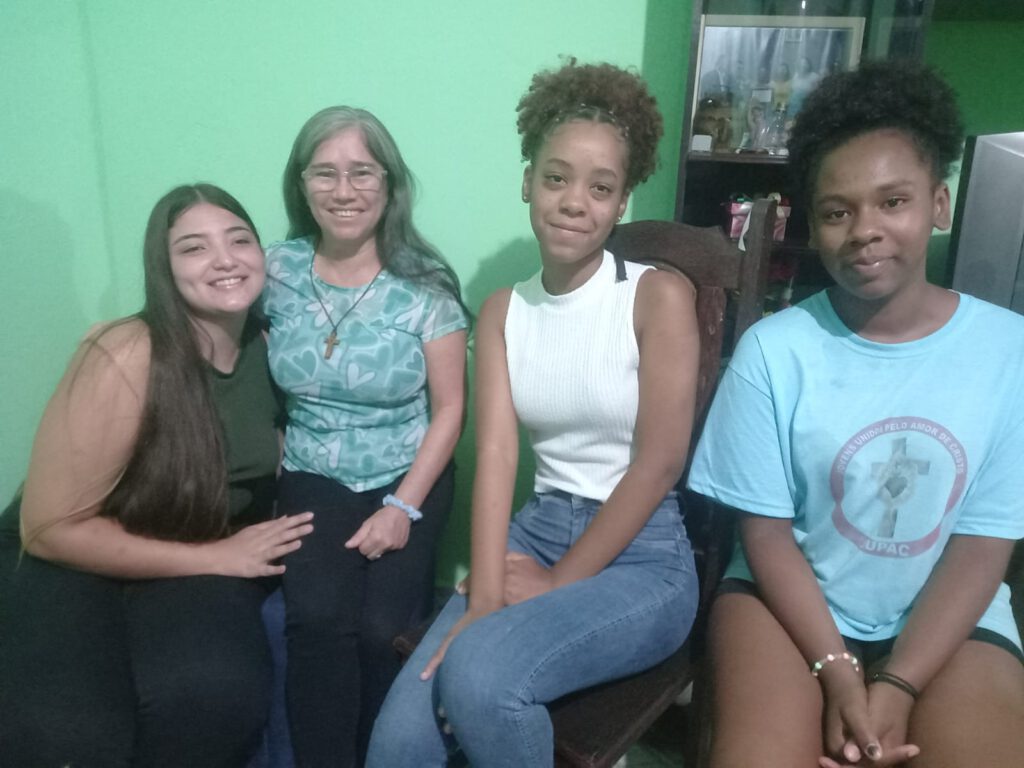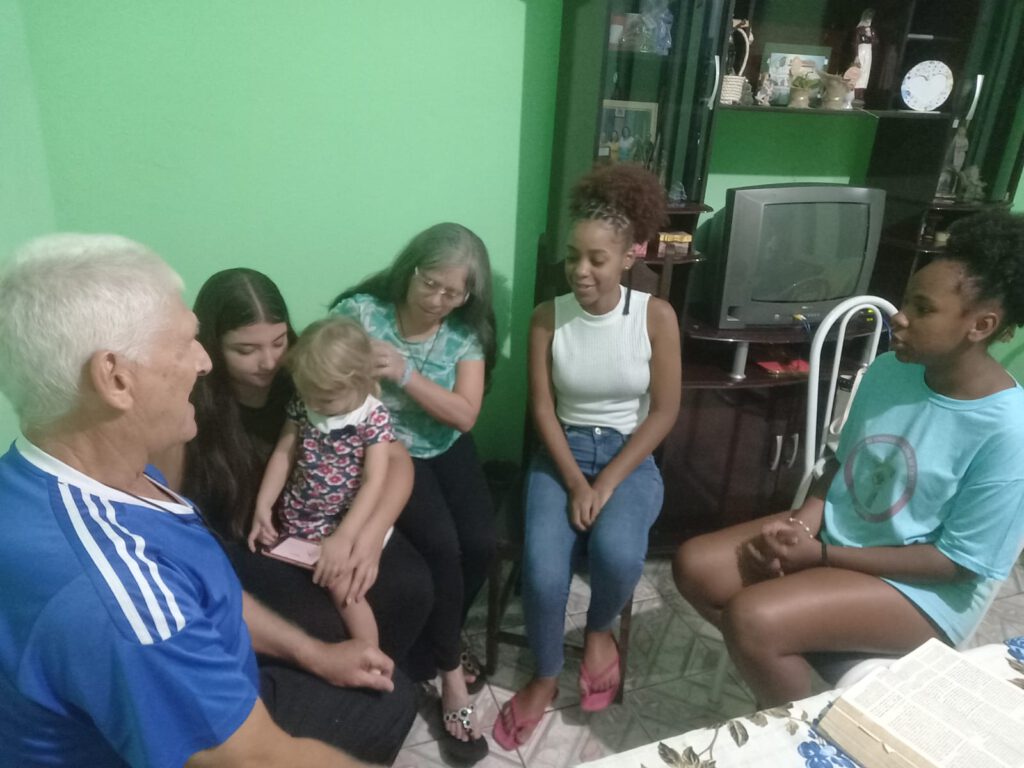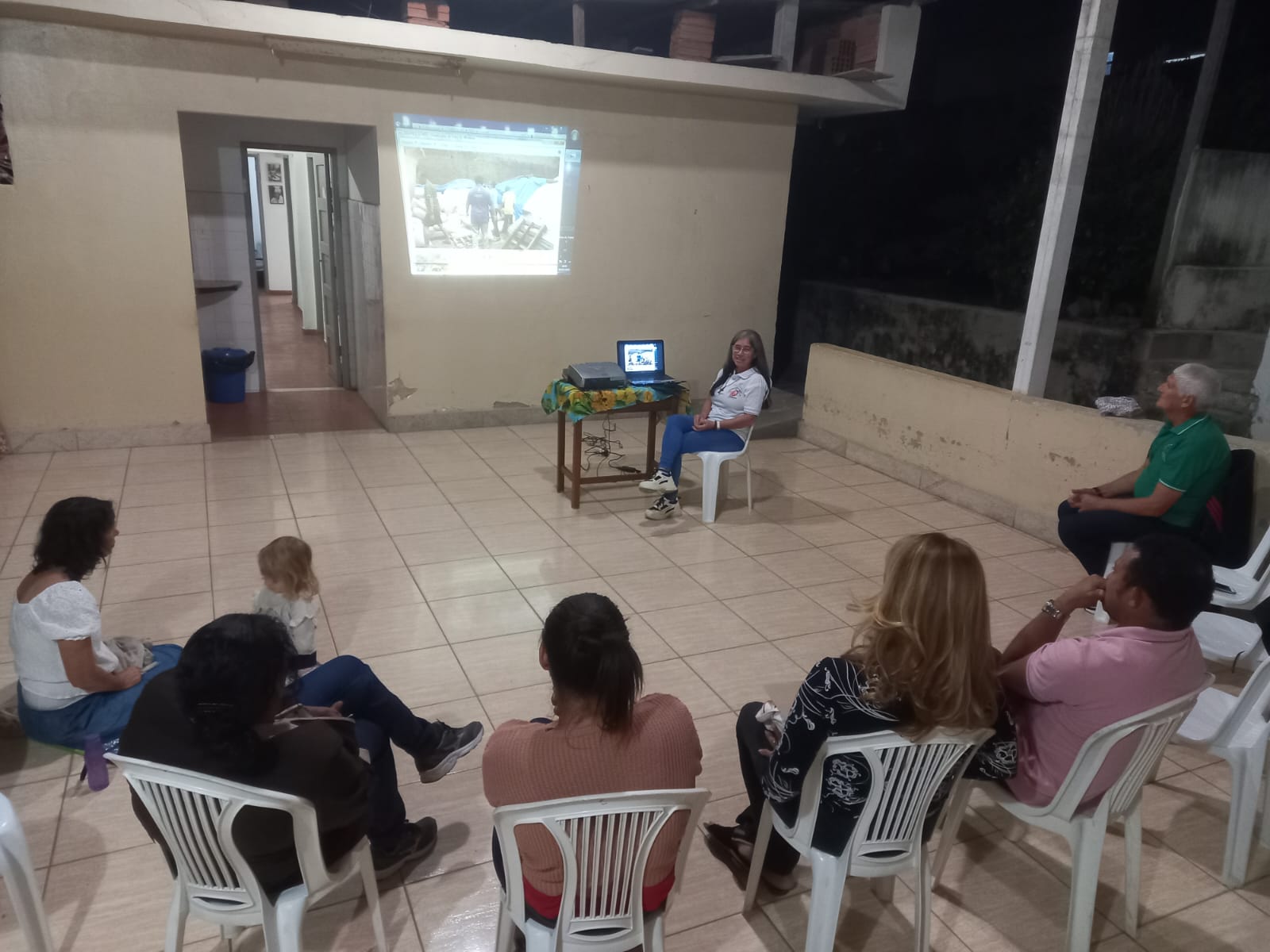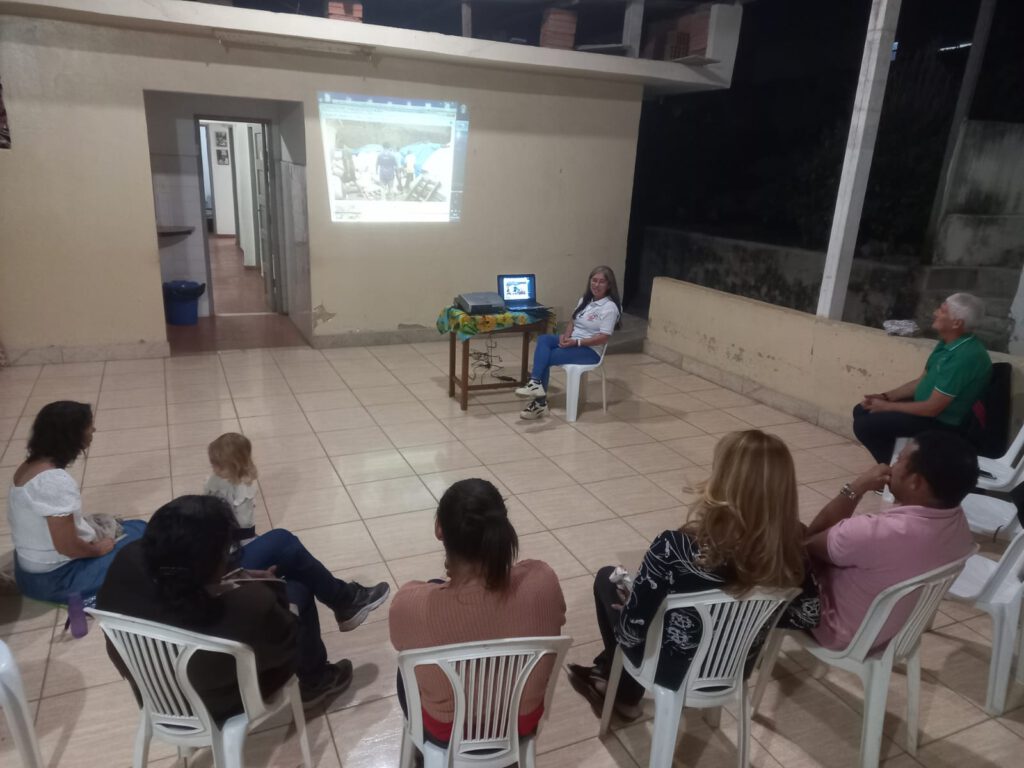In this video we present to you the reality of our group of Comboni Lay Missionaries in Brazil.
Brazil
1st Christmas celebration in Piquiá da Conquista, a symbol of struggle and hope
On December 25, the first Christmas celebration took place in the community center of Piquiá da Conquista, in Açailândia. Comboni priests, lay missionaries and the local community, made up of the neighborhood’s new residents, gathered. Piquiá da Conquista is the result of more than a decade of struggle by the people of Piquiá de Baixo, who faced unhealthy conditions and rights violations due to industrial pollution. This mobilization resulted in a historic victory: resettlement in a dignified space, where today the families are building a new life.
Marcelo Moutinho, a psychologist and Brazilian CLM, who took part in the celebration with his wife Adriana, says: “On a visit to Maranhão, I longed to return to Piquiá da Conquista, after the construction work had been completed, to witness and together celebrate this great victory, which will become an inspiration for the various challenges that Christians face in their day-to-day mission and struggles for human rights. The CLM in Brazil, through the different presences over the many years of the struggle of Xoáncar, Ilária, Federico, Liliana, Flávio, Gabriel, Anna and other supporters, together with the community of Comboni Fathers of this parish, have actively participated in various stages of this achievement”.
The Comboni Lay Missionaries, as part of the Comboni family, work in partnership with communities to evangelize and build social justice, being signs of hope and solidarity in the most challenging contexts of the Church, such as the indigenous cause, the challenges of the urban peripheries, Restorative Justice in the prison system (APACs) and the struggle for decent housing.
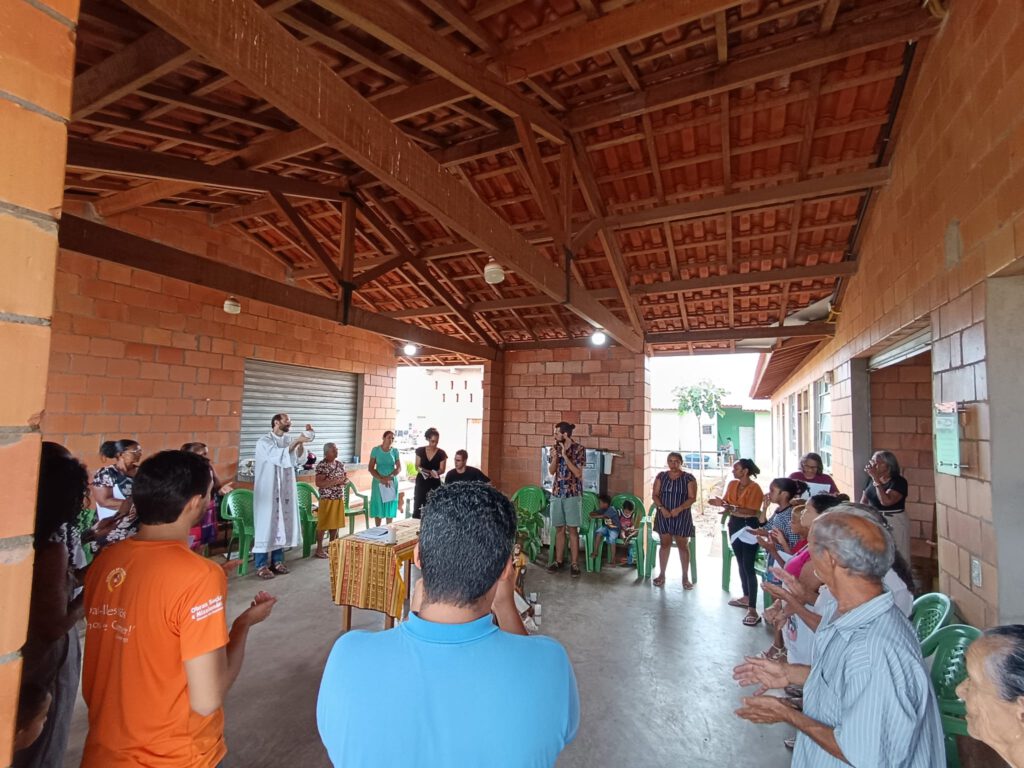
The celebration was a moment of deep spirituality and fraternity, symbolizing the rebirth of life and faith. May the example of struggle and resilience of this community inspire more people to join the Comboni mission of spreading the love, justice and peace that Christmas invites us to live. After all, the true meaning of Christmas lies in building a more just and humane world together.
Adriana and Marcelo Moutinho, Brazilian CLM couple
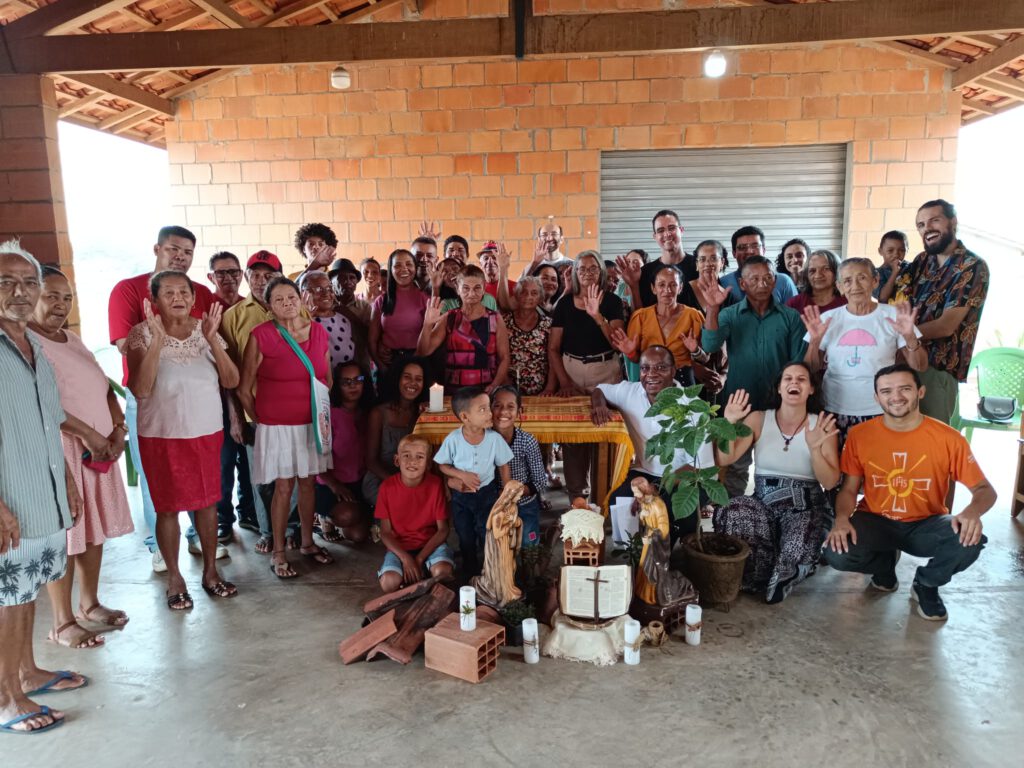
Want to know more?
- About the struggle and conquest of Piquiá: https://piquiadebaixo.com.br/ @piquiadebaixo
- About the Comboni Lay Missionaries of Brazil: http://surl.li/uixfyf @lmcbrasil.ofc
Meeting of the Comboni Family in Vitória (ES-Brazil)
On Friday morning, 06/07/24, we met to celebrate and share a family moment. A meeting of the Comboni Family.
The meeting began with the celebration of the Word, which was presided over by Father Carlo Faggion, also present were Fathers Elio, Vincent and Willy. We were welcomed by the Comboni Sisters who live there. I took part representing the Comboni Lay Missionaries.
“A credible witness to a new humanity and solidarity” was an excerpt from Father Carlo’s reflection. He also presented us with an illustration of St. Daniel Comboni on the cross with Christ. This image is full of symbolism and provokes many reflections on this day dedicated to the Sacred Heart of Jesus.
“It’s about Comboni’s marriage with the Cross and the unique gaze of Jesus and Comboni. Africa is in the heart.”
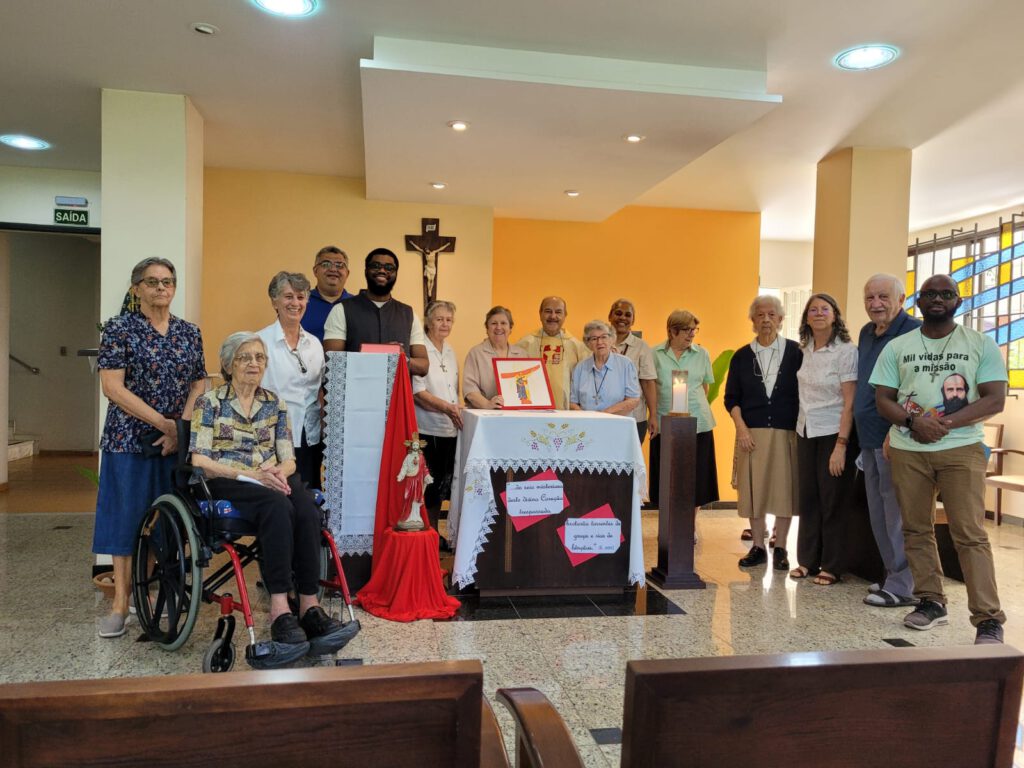
Tranquillo Dias, LMC in ES (Espírito Santo)
Meeting the teenagers of Ipê Amarelo
Returning to my homeland, to my country, is wonderful. But nothing compares to the joy I got from the children I worked with at Ipê Amarelo.
Isabela, Larissa, Laisla and Erik are some of the teenagers who are now part of the youth choir.
After 2 years and 4 months in Mozambique, I returned to Ipê Amarelo and received a welcome I had never expected.
The strong hug and the: “how much I missed you” that I heard from each of them was the most emotional moment I’ve ever felt. For me, this is the missionary’s best reward.
After meeting at the church, at their request we arranged a time to remember what we had experienced and for each of them to share what they had experienced after leaving. Work, study and to let off steam.
It was a very pleasant moment, we talked, and each one spoke about their expectations for the future.
Tito and I shared with them a little of our experience in Mozambique.
We had a snack and ended the meeting by looking at photos of performances, theaters and the choir’s first rehearsals years ago. We laughed a lot. It was wonderful.
I’m grateful to them and even more to God for allowing me to have such a beautiful experience.
Regimar, CLM
Missionary sharing about the mission in Mozambique
On the evening of May 9, Regimar and Tito shared with the GEC (Comboni Spirituality Group) of Nova Contagem about their first mission period in Mozambique.
Through photos and videos, they recalled various moments from their memories.
The people present interacted, asking questions and commenting.
One of the highlights of the sharing was the help given to the families with the donations received from Brazil and Poland after the cyclone that hit the region in 2022. The couple thanked them for their collaboration and stressed how important it had been.
They talked about the seed project, which worked very well, where they gave the families a quantity of bean and corn seed to plant and after the harvest, the families returned the same quantity. Although not everyone returned the seeds, the overall balance was positive, with beautiful signs such as families returning larger quantities than they had taken, as a sign of gratitude. And this cycle is continuing for this harvest too.
They talked about the culture, the challenges, the joys and the future prospects.
At the end, we prayed together and ended with a shared snack.
The GEC is grateful for the sharing and the missionary enrichment!
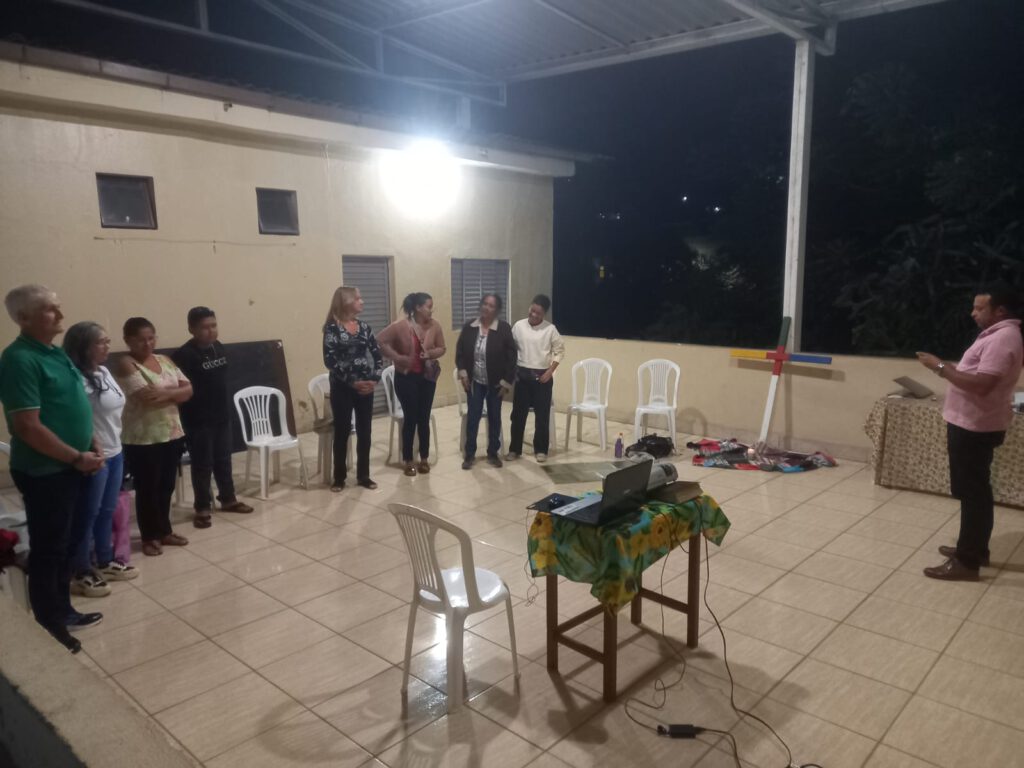
GEC Nova Contagem




